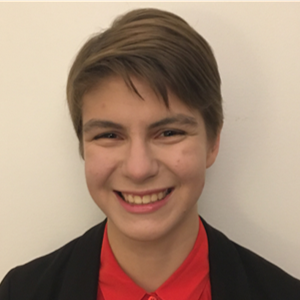With their unique combination of binding, enzymatic, and structural properties, protein materials have tremendous promise for a variety of biomaterials applications, such as biosensors and industrial catalysts. As synthetic biology has advanced rapidly, DNA synthesis cost and time have decreased dramatically, leaving recombinant protein expression as a key bottleneck in materials innovation. Expression of the protein of interest requires a largely empirical optimization process, with automated screening tools accessible but at extremely high cost. To leverage the wealth of achievable sequences, it is essential to establish an accessible, low-cost, combinatorial screening tool to identify high yield protein expression conditions suitable for protein materials.
In this seminar, I will discuss a high-throughput E. Coli expression platform that we have developed using a low-cost liquid handling robot and open-source software, which was tested on 17 constructs of interest to demonstrate its wide versatility. Specifically, the genes of interest were inserted into a small library of different DNA plasmids commonly used for biomaterial expression, which include a variety of inducible promoter systems, and further transformed into different cell strains to form a combinatorial expression library that can be tested in well-plate format. Cell growth was monitored by tracking the OD600 value, and a protocol with a simple automated camera was developed and validated such that the platform can be operated without a spectrophotometer. Post-expression, the yield of total protein, via Bradford assay, and of the protein of interest, via dot blot, were quantified to identify promising cell-plasmid combinations that can be further optimized with changes to media, temperature, and time. Reasonable expression conditions can now reliably be found an order of magnitude faster, and conditions for previously un-expressible proteins were elucidated in several cases. Overall, this method represents a shift toward enabling rapid materials design cycles in protein materials to promote next-generation materials technologies.

Melody A. Morris is a postdoctoral research associate in the Department of Chemical Engineering at MIT with Professor Bradley D. Olsen. She earned her B.S. in Chemical Engineering with an emphasis in materials from the California Institute of Technology and her Ph.D. in Chemical Engineering from the University of Delaware under the guidance of Thomas H. Epps, III. Her doctoral research on block copolymer electrolytes for lithium-ion batteries was acknowledged as a Padden Award finalist at the 2019 American Physical Society meeting and at the Excellence in Graduate Polymer Research Symposium at the 2019 American Chemical Society meeting. In her time at the University of Delaware, she was also awarded the Pigford Fellowship, Pigford Teaching Assistant Award, and Frasier and Shirley Russell Teaching Fellowship. Currently, Melody is developing high-throughput methods for the optimization of protein materials and engineering materials with selective biomolecular transport properties.

